
Listen to any discussion of baking long enough and you'll hear something -- often a cake -- described as being "made from scratch." Food writers and cooks have been using the expression for nearly 100 years, but even today, it can have slightly different meanings for different people.
The Starting Point
For centuries, the term "from scratch" has meant "from the beginning" in everyday English. Originally, it referred to the starting line in a race, which was often simply a line, or a "scratch" drawn in the dirt. This is also the source of the expression "up to scratch," which refers to the line a boxer had to stand on at the beginning of a round. By the early 20th century, the general meaning of "from the beginning" or "without extra help" developed into the more specific cooking sense of "from nothing."
Defining "Scratch"
The most common use of "from scratch" in baking is to refer to baking without using packaged ingredients such as cake mixes, pie crusts, cookie dough or frosting. But how little preparation is permissible? Cooks of previous generations sometimes bred their own yeast or ground their own flour. Astronomer Carl Sagan famously said that "if you wish to make an apple pie from scratch, you must first invent the universe," pointing out that even basic ingredients come from somewhere else. The exact definition of "from scratch" can vary from person to person.
The Advantages of Baking From Scratch
Baking from scratch has a number of advantages over using store-bought goods. For many, home-baked bread, cakes and treats have a quality that you cannot equal by a mass-produced baked good. Additionally, baking from scratch enables the baker to customize, adjusting the recipe to suit his tastes. Baking from scratch can also be cheaper than buying baked goods at a store, although this isn't true for all products.
The Disadvantages of Baking From Scratch
When food writer Jennifer Reese compared the costs of cooking from scratch and shopping for staples, she intentionally omitted the time spent cooking from her calculations. This makes sense for those for whom baking is a hobby; the time they spend cooking is part of the enjoyment they receive. For those with busy schedules, however, or for those in which time spent in the kitchen would be more enjoyably spent elsewhere, using prepared ingredients can be a valuable shortcut.
Related Articles

Whole Wheat Pastry: Flour Substitutions

What Is the Difference Between Nike Air ...

How to Make Communion Bread Wafers

Applesauce as an Egg Substitute for ...

About Colonial Desserts

How to Use Powdered Milk for Baking
Role of Xanthan Gum in Vegan Baking

Differences Between French & Italian ...

Croton Watches History

A List of Leavening Agents
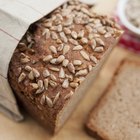
Russian Rye Bread vs. Pumpernickel
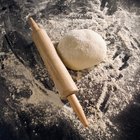
How to Use Xanthan Gum in Baking

How To Get a Neiman Marcus Catalog
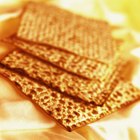
What Is Unleavened Bread?
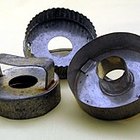
The History of the Biscuit Cutter
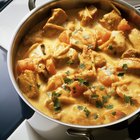
What Is Vegetable Ghee?

List of French Pastries

What Is Spry Shortening?

Does Canola Oil Taste the Same as ...

Can I Substitute Olive Oil for ...
References
Writer Bio
Dr James Holloway has been writing about games, geek culture and whisky since 1995. A former editor of "Archaeological Review from Cambridge," he has also written for Fortean Times, Fantasy Flight Games and The Unspeakable Oath. A graduate of Cambridge University, Holloway runs the blog Gonzo History Gaming.
Photo Credits
Michael Blann/Digital Vision/Getty Images